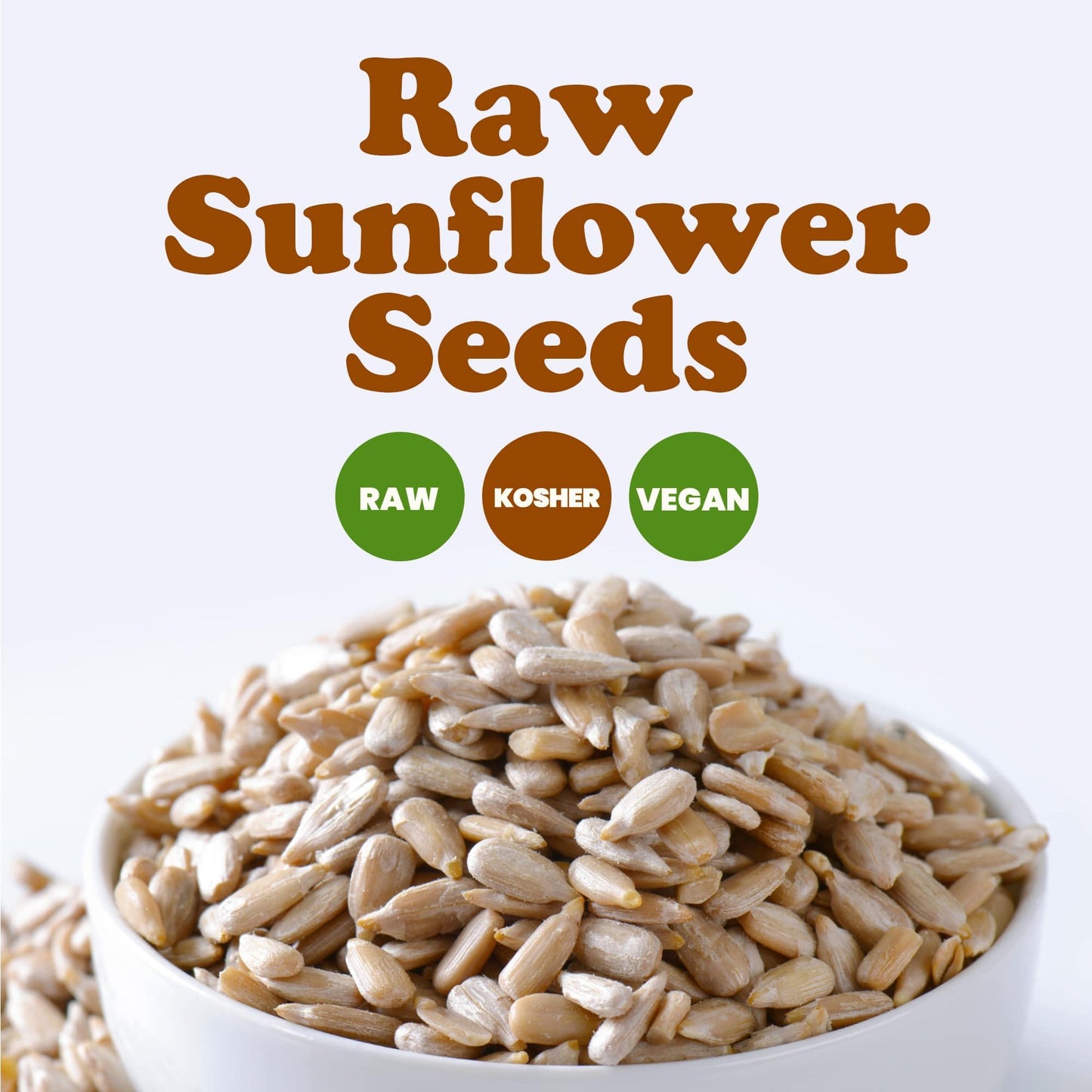You will not be allowed to compare more than 4 products at a time
View compareProduct Description
Used in many cuisines all over the world, sunflower seeds are a precious source of essential nutrients and the most popular cooking oil. They can make many of your dishes pleasantly crunchy while the health benefits offered by these seeds are too numerous to count. Nutritional Value Sunflower seeds are one of the best sources of the following essential nutrients: - Vitamin E - Thiamin - Pyridoxine - Copper - Selenium - Phosphorus - Magnesium - Manganese Directions Store your bag of sunflower kernels in a refrigerator or in a cool dark place to keep them fresh for longer. Keep the bag tightly shut. The rich nutty flavor of sunflower seeds allows adding them to many dishes. They go best with salads, cereals, baked goods, and rice dishes. You can turn the seeds in a sweet snack by coating them in chocolate or candying the kernels. This product is processed in a facility that also processes tree nuts and wheat. Sunflower Seeds Allergy Warning Consumption of sunflower seeds can cause an allergic reaction in some people. Common symptoms of sunflower seed allergy are similar to many other allergies, such as peanut allergy. Possible allergic reactions include (but not limited to) diarrhea, vomiting, and anaphylaxis. If you have food allergy, consult your doctor before consuming sunflower seeds.WARNING: Consuming this product can expose you to chemicals including Cadmium, which is known to the State of California to cause cancer and birth defects or other reproductive harm. For more information go to www.P65Warnings.ca.gov/food
Frequently Asked Questions
- Q: What are the health benefits of consuming sunflower seeds? A: Sunflower seeds are rich in essential nutrients such as Vitamin E, Thiamin, Pyridoxine, Copper, Selenium, Phosphorus, Magnesium, and Manganese. These nutrients can help support heart health, improve skin health, and provide antioxidant protection.
- Q: How should I store sunflower seeds to keep them fresh? A: To maintain freshness, store your sunflower seeds in a cool, dark place or in the refrigerator. Ensure the bag is tightly sealed to prevent exposure to moisture and air.
- Q: Can sunflower seeds be used in cooking and baking? A: Yes, sunflower seeds are versatile and can be added to salads, cereals, baked goods, and rice dishes. They can also be enjoyed as a healthy snack or sweetened by coating in chocolate.
- Q: Are there any allergens associated with sunflower seeds? A: Yes, sunflower seeds can cause allergic reactions in some individuals, similar to peanut allergies. Symptoms may include diarrhea, vomiting, and in severe cases, anaphylaxis. If you have food allergies, consult your doctor before consuming.
- Q: Is this product non-GMO and kosher certified? A: Yes, Food to Live Sunflower Seeds are non-GMO verified and kosher certified, making them a suitable choice for those seeking natural and high-quality snacks.












